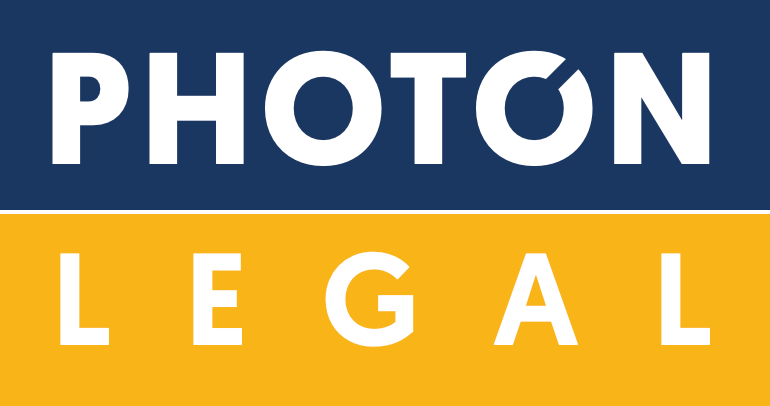Author – Anushree Capoor and Amit Koshal
What is a Trademark?
Trademark is nothing but the brand identity of a business. It is a mark of uniqueness and origin of a product that associates the product with its producer. For example, the crocodile mark on a shirt is known to belong to the brand Lacoste. Such marks of a trader when registered are known as Trademarks. Registration of trademarks has seen in a stark increase in the recent times. This can be attributed to the unprecedented growth of numerous local, national and international brands. Since brand names help businesses gain recognition and help build an image for its products, businesses register them to ensure fair trade in the market.
Importance of a brand name
Brand names are the face of a business and contribute as an intangible asset. Over time, customers begin to associate quality and preferences with the brand name. This helps the business attract regular customers and build goodwill for itself. For example, most customers associate a quality, price range and the type of products with Bata. Certain companies that stand for high end luxury products monetize on their brand name. Customers purchase their products solely for the purpose of owning a product of that brand.
Businesses can therefore use the brand name to amplify its business and multiply profits. Brand name also helps a business in promoting its products and advertising its business. Taglines, catchphrases and jingles create a subconscious memory of the brand name which drives consumer preferences and promote business.
Need for Trademark Registration
What if a person starts selling similar products in the market with your brand name or misrepresents to its customers in a manner so as to show that his/her goods & services are connected to yours? This is known as infringement of trademark or passing off of goods and services. A similar brand name may be used in a calculated manner to deceive/confuse the consumer and pass off their goods as yours, to earn profits at your cost. Similar brand names may also be used to release inferior quality products and tarnish the reputation of the business. This severely impacts the profits and goodwill of the business.
How to protect your brand name?
Registering the brand name with the Trade Marks Registry can help in protecting the business from counterfeit goods and from being misrepresented. Various graphical representations of the brand name can be registered. This includes a pictorial representation (ex: apple logo), a brand name (ex: McDonalds), name (ex: Sabyasachi), signature (ex: Sachin Tendulkar), word (ex: apple), letters (ex: H&M), numeral (ex: 7 Up), shape of goods (ex: Toblerone), packaging or combination of colours (Ex: Cadbury-white and purple) or any combination thereof.
Such a mark is registered for a particular class of goods & services or several classes together. Once a trademark is registered, it is a right in perpetuity, subject to it being renewed every 10 years and it being used to avoid non- use cancellation.
Advantages of registration
Trademark registration confers on the owner the exclusive right to use the trade mark in relation to goods or services in respect of which the mark is registered. This includes the right to license or assign the trademark to other users in order to carry out franchises or licensed outlets. Trademark registration also ensures that any other person using an identical or similar mark for similar goods or services can be directly held liable.
Since registration of trademark has the benefit of presumption of ownership, the burden of proof is on others to try and disprove it. The owner is only required to establish that the infringing mark is deceptively similar to his registered trademark, after which there is presumption of confusion in the minds of the consumers. This standard of proof is lower than in the case of passing off which makes it pertinent for businesses to register their trademarks. Registration also offers various remedies in case of infringement including injunctions, damages and destruction of goods. Injunctions may be interim or obtained ex-parte for preserving evidence and restraining the accused from disposing infringed goods. Damages awarded may be compensatory, punitive or nominal. Profits unjustly made may also be appropriated to the rightful owner.
Is registration necessary to obtain relief against infringement?
No. A case for passing off under common law can still be made and common law remedies can be availed. However, in order to claim such relief, the owner needs to establish the goodwill of his goods & services, prove misrepresentation and actual damage suffered by him.[1] This degree of proof is very high and burdensome as against the proof required to establish infringement under the Trademarks Act, 1999. The Supreme Court has clearly stated that “In an action for infringement, the plaintiff must, no doubt, make out that the use of the defendant’s mark is likely to deceive, but where the similarity between the plaintiff’s and the defendants mark is so close either visually, phonetically or otherwise and the court reaches the conclusion that there is an imitation, no further evidence is required to establish that the plaintiff’s rights are violated.”[2]
Further, the suit can only be instituted before a District Court, within the local limits of whose jurisdiction the infringer is residing, working for gain or carrying on its business; or the cause of action has arisen. The most practical and important benefit of registration is the liberty to institute a suit for infringement before a District Court or High Court within the local limits of whose jurisdiction, the person instituting the suit, actually and voluntarily resides or carries on business or personally work for gain. It is therefore advisable to register trademarks since they go a long way in protecting the identity of the business and in reaping the benefits of hard work.
For protecting your brand and business identities, please drop in your queries at photon.ip@photonlegal.com
Call/Whatsapp us at – +91 8208626563.
Team Photon Legal
[1] Laxmikant V. Patel v. Chetanbhat Shah, AIR 2002 SC 275. [2] Durga Dutt Sharma v. N. P. Laboratories, AIR 1965 SC 980.
Cover image source – Patent Attorney India.


One Comment